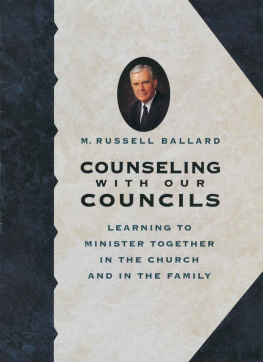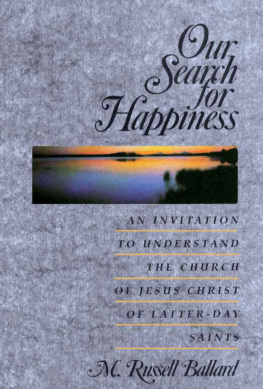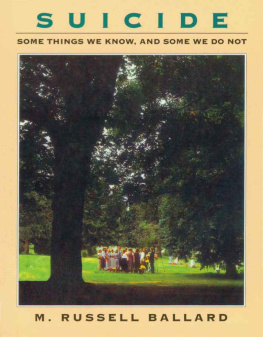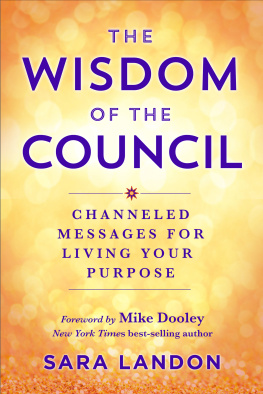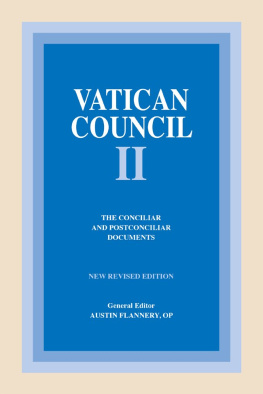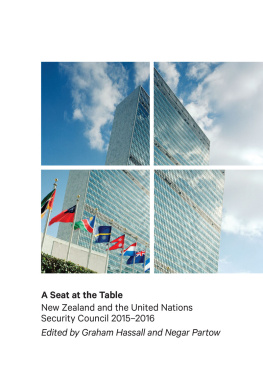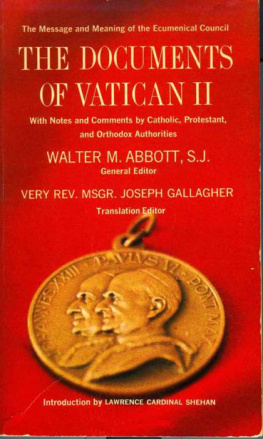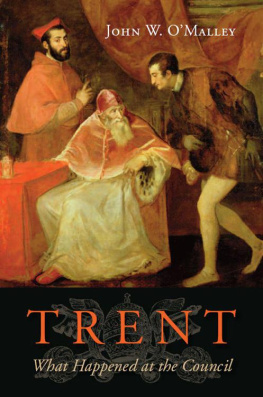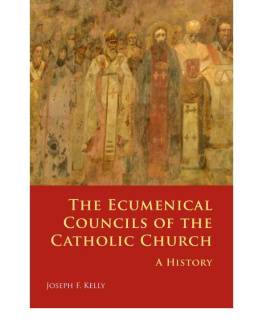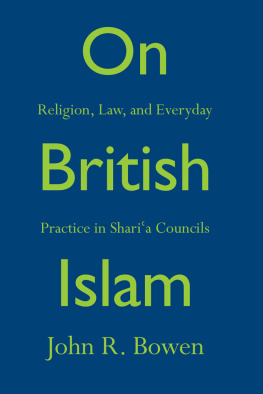Counseling with Our Councils
Learning to Minister Together in the Church and in the Family
M. Russell Ballard
1997 M. Russell Ballard.
All rights reserved. No part of this book may be reproduced in any form or by any means without permission in writing from the publisher, Deseret Book Company (permissions@deseretbook.com), P.O. Box 30178, Salt Lake City Utah 84130. This work is not an official publication of The Church of Jesus Christ of Latter-day Saints. The views expressed herein are the responsibility of the author and do not necessarily represent the position of the Church or of Deseret Book. Deseret Book is a registered trademark of Deseret Book Company.
Preface
Preface
The world in which we are now living is filled with things that are in direct opposition to the teachings of the Lord Jesus Christ. Great pressures from Satan are evident all around us. Our families are under attack, and our youth are being bombarded with evil influences. Over the last few decades we have been blessed with marvelous technological advances of all kinds, but during the same period we have seen dramatic increases in immorality, abortion, divorce, child abuse, drug abuse, violent crime, and many other social ills.
Of special concern is the effect these trends have had on the family. For example, one social commentator has written that "the present illegitimacy ratio is not only unprecedented in the past two centuries; it is unprecedented, so far as we know, in American history going back to colonial times, and in English history from Tudor times" (Himmelfarb, De-Moralization of Society, 23). And a noted family historian at Princeton University, Lawrence Stone, has said: "The scale of marital breakdowns in the West since 1960 has no historical precedent that I know of, and seems unique.... There has been nothing like it for the last 2,000 years, and probably longer" (quoted in Popenoe, "World without Fathers," 13).
Circumstances are so different today from when I was a teenager, a young bishop, and even a bishop for the second time. As President Ezra Taft Benson testified, "Wickedness is rapidly expanding in every segment of our society.... It is more highly organized, more cleverly disguised, and more powerfully promoted than ever before" ("I Testify," 87).
Because of these conditions, I have had on my mind for several years now the question: How can the Church best prepare all of its members to cope with today's challenges and ever-changing circumstances?
No longer can any one leader, either man or womanor for that matter, any parentattempt to provide what is so desperately needed in the lives of our families and Church members. If we are to succeed in leading our Heavenly Father's children toward eternal life, we must counsel together and help each other.
My thoughts go frequently to the inspired council system that exists in the Church. It is clear to me that the Lord has provided us with a sound tool to help us minister more effectively to our people and solve the problems that confront individuals and families.
We each bear the primary responsibility for meeting our own spiritual and temporal needs, and most of us can turn to immediate and extended family members for assistance, counsel, and encouragement. But the Lord has also established, both in the Church and in our homes, a system of councils designed to strengthen and uplift every Latter-day Saint. These range from the Council of the First Presidency and the Quorum of the Twelve Apostles to the family council, and all play an important role in blessing and saving souls. Within the Church, much of this sacred work is accomplished at the stake and ward levels. (Throughout this book, the terms stake and ward also apply to district and branch.)
Many of our bishops and stake presidents are burdened with the personal problems of the Church members for whom they have stewardship. Every resource available must be enlisted to win the battle for the souls of our Father's children. I feel strongly that the best way to help lift the burden is to invite stake and ward council members to assist in finding the answers and implementing the solutions that the gospel of Jesus Christ provides. Pages at the end of this book may be used for writing down ideas for finding those answers and then implementing the solutions.
It would be well in appropriate instances to include auxiliary leaders in the discussions aimed at finding wise solutions to our many challenges. Sister leaders are members of stake and ward councils as well as stake and ward welfare committees. Priesthood leaders cannot afford to overlook the experience, wisdom, sensitivity, and insight women bring to such deliberations. One of my main purposes in writing this book is to encourage priesthood leaders to invite the sisters to more fully participate in developing solutions to the difficult problems confronting members of the Church.
Our leaders have provided clear statements that help us better understand the vital contribution sisters can make to the gospel kingdom. Consider this plea from President Howard W. Hunter: "It seems to me that there is a great need to rally the women of the Church to stand with and for the Brethren in stemming the tide of evil that surrounds us and in moving forward the work of our Savior.... Obedient to him we are a majority. But only together can we accomplish the work he has given us to do and be prepared for the day when we shall see him" ("To the Women of the Church," 96).
My sincere desire is that this book will help all those who have been called to lead and serve in the gospel kingdom gain a wider vision of the power that exists in the councils that have been put in place in The Church of Jesus Christ of Latter-day Saints.
Acknowledgments
I am indebted to a number of people who have contributed to the development of this book. My secretary, Carolyn Hyde, has been immensely helpful in doing research and in preparing and revising the manuscript. Several friends and colleagues have read drafts of the manuscript and have offered insightful recommendations for improvement. Consultation and assistance from Joseph Walker and Andrew Allison have helped me move the work forward. Ron Millett and Sheri Dew at Deseret Book have encouraged this project from its earliest stages, and other members of the Deseret Book team, including Kent Ware, Suzanne Brady, Richard Erickson, and Tonya Facemyer, have helped convert the manuscript into a finished publication. As always, I express my love and appreciation to my wife, Barbara, for her patience and constant encouragement. Notwithstanding the excellent contributions and suggestions of these and many other people, I alone bear responsibility for what is written in this book.
Introduction
Spiritual Synergism
In my introduction to the book Our Search for Happiness, I asked readers to consider for a moment the word understanding. "It's a simple word, reallyone that most of us use every day," I wrote. "But it means something that is quite remarkable. With understanding we can strengthen relationships, revitalize neighborhoods, unify nations, and even bring peace to a troubled world. Without it chaos, intolerance, hate, and war are often the result.
"In other words, misunderstanding" (Ballard, Our Search for Happiness, 1).
As with that previous volume, my primary objective in writing this book is to facilitate understanding. In this case, I'm writing primarily to Church members who have been called to serve on one of the many different kinds of councils that exist in the Church, such as stake presidencies, bishoprics, ward and stake councils, and auxiliary presidencies. In addition, many adult members preside over family councils. It is my sincere hope that those who read these pages will have a better sense of what a Church council is, how it should function, and how members can magnify their contribution to the process of counseling through our councils.

